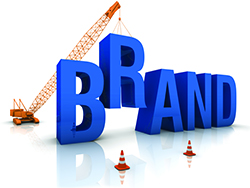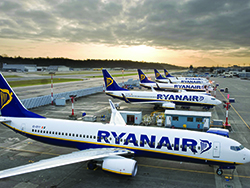 With companies having to work so much harder to retain the public’s love, how does a brand come back from the dead once it’s fallen out of favour?
With companies having to work so much harder to retain the public’s love, how does a brand come back from the dead once it’s fallen out of favour?
These days, it seems that companies can wreck their reputation with just one ill-judged tweet. For others, it takes slightly more catastrophic circumstances. United Airlines, BP, Hotpoint and Barclays spring to mind in this category, for a whole host of different reasons.
Damage to a brand can be swift, especially with social media giving customers an easy outlet to vent their spleen against a company. However, Nichole Culverwell, Director at PR company Black Vanilla, insists that, in most instances, reputations aren’t destroyed overnight.
“Brands may seem to have been brought down quickly, but usually it’s a result of a long-term accumulation of failures.” She points to BlackBerry as a case in point. “With BlackBerry, brand erosion was slow-build. The product didn’t keep up with innovation from rivals or respond to people’s changing habits.”
BlackBerry’s cause wasn’t helped by its social media team tweeting from their official account using an iPhone. Culverwell says a headline-grabbing ‘reputational crisis’ is usually, on closer inspection, the result of a long series of ill-judged decisions.
Chris Chilton, Managing Director (Operations) at PR firm Orchard, agrees that brand damage can be cumulative in nature. “A brand can become jaded and potentially out of touch if it fails to mature and evolve in line with its market. This will mean really listening to customers and making positive changes to align with their conscience, beliefs and values.”
Brand identity
In order to understand why companies can fall out of favour, we need to look at exactly what constitutes a brand and why it’s so important.
Adam Riddell, Director at Crystal PR in Jersey, insists it’s about far more than a slick logo. “Reputation lies at the very heart of the modern brand. And this is linked to service, product, quality and sustainability. It’s also about corporate behaviour – how ethics and corporate governance are defined.”
In essence, brand is the identity of the business – what it stands for, and how it is and wants to be perceived. One of the definitions of PR is ‘what you do, what you say and what others say about you’. Brooke Kenyon, Managing Director (Client Services) at Orchard, says this maxim is equally applicable to brand. “Endorsements from brand ambassadors, opinion formers, even competitors are very valuable.”
So how can a brand become undone? The answer is in a multitude of ways. Launching a woefully sub-standard product in a highly competitive market, harming the environment or providing pitiful after-sales service are unlikely to do you much good. Disrespecting your customer base is usually pretty damaging too. As a PR own-goal, Gerald Ratner’s reference to his own products as “crap” takes some beating.
One damaged brand that springs to Chilton’s mind is taxi giant Uber. “Arguably their product is very successful, welcomed by the market, and in line with customer expectations. Their business has, however, been beset by reputational issues in the US – sexual harassment allegations, being sued by Google, the resignation of a Senior Vice President over a scandal, and dashcam footage showing the founder losing his temper with a driver.
“Issues like these suggest that the fast-growing business, which is in the spotlight, has failed to put measures in place to protect its reputation, and its business is suffering as a result.”
Customer boycotts
The idea that product is the be-all and end-all is also some way off the mark. Customers may boycott a product not on grounds of quality but because, for example, it comes to light that they’ve used child labour or haven’t paid their fair share of tax.
Indeed, tax has proved a thorny issue for the likes of Amazon, Google and Starbucks, which came under fire for not paying UK tax on sales despite large-scale business operations in the country.
As Riddell explains, the widespread call for better corporate behaviour brought about a response. “Reputational decisions were made in the boardroom and tax payments were made to satisfy public demand. We wouldn’t have seen this happen 10 years ago. Multinationals realise now that it’s not good enough for companies to just ‘say something’, they have to be seen to be doing something.”
Clearly the reputational damage felt by the likes of Amazon, Google and Starbucks wasn’t irredeemable – they weren’t battered brands in the way Ratners or, more recently, Bell Pottinger were.
Other companies have disappeared not because their product was poor or they’d been embroiled in scandal, but because their business model let them down. In many ways, Kodak was a pioneering company, but it didn’t manage its operations in an agile way and soon had a business model that wasn’t fit for purpose.
Kodak sold arguably the best digital printers in the marketplace, but rather than work with partners, the company decided to build its own. The result was that it lost ground in terms of speed to market and competitive advantage.
So, if a brand is battered – how can it be rebuilt? Chilton says it partly comes down to ethics and clear communication. “Customers understand that people in charge of business sometimes make mistakes. It’s what they do next that really matters. Often it’s possible to be honest, transparent, apologetic, even remorseful, and gain the empathy and support of customers, then move on.”
This point is echoed by Culverwell: “You have to be honest and open about the problem. VW’s response to the emissions scandal has at times been praised. Compensation has been generous and they’ve put the customer first, even if it’s cost the company more. In cases like VW, you need to show integrity and demonstrate that you’re addressing the issue. When a brand’s reputation takes a hit like this, the first people you need to call are your PR team not your legal team.”
Picking up the pieces
Rebuilding a brand, whether it’s just tired or has been hit by controversy, can often take time. If the product is poor quality or outdated, you won’t be able to advertise your way out of trouble. If the product is sound, but maybe the brand name has lost its allure, then there is real opportunity.
Old Spice is one brand Adam Riddell highlights. “Old Spice has, over years, been viewed as a product for the over-50s. But the company launched a successful and humorous campaign aimed at a younger audience. The product is exactly the same, it’s just how it’s perceived that’s changed.”
The concept of reinvention also applies to much-berated brands such as Skoda. In the days before perestroika, Eastern-bloc-manufactured cars like Skoda were referred to as ‘skips on wheels’ – known for being cheap yet often unreliable. But fast forward to this year and Skoda – now owned by VW – has won multiple awards. “Skoda has allied itself with another brand to win favour and target a completely different demographic,” Riddell says.
Brooke Kenyon describes Skoda as a successful ‘challenger brand’. “People like the underdog – they like competition and they want the small challenger to do well,” she says.
Looking at things from the top down, a charismatic leader is often an asset to a business. But are some companies too heavily reliant on the personality of the founder? Undoubtedly companies such as Ford, Disney, Apple and Virgin have attached themselves closely to the person at the helm. Kenyon argues that while there are many examples of successful businesses named after their founder, there is more robustness and resilience if the reputational responsibility is shared across the management team under an unrelated brand identity.
Vulnerable sectors
When it comes to riding the storm, are certain industries more resistant than others to bad press? Culverwell says: “Retailers and possibly phone companies are more resilient – in the majority of cases the consumer isn’t at risk if something goes wrong. However, with healthcare companies, for example, especially where ethics and child safety are concerned, when their reputations are called into question it can be very damaging.”
The baby milk scandal in the 1970s is one example. Multinational milk companies including Nestlé were accused of causing infant illness and death in poor communities by promoting bottle feeding and discouraging breast feeding. The reputational damage associated with such an emotive scandal was huge and long-standing.
Unquestionably the biggest threat to reputational damage in the coming years will be linked to cyber security. It’s not a case of if but when a brand is targeted. “Cyber security is a huge challenge and is very relevant to the Channel Islands, given the number of financial companies here,” Culverwell says. “When a security issue arises, you have to move very fast. Not being prepared means you’ve left your brand open to serious damage.”
Are some brands immune?
 You could argue that ‘no frills’ airlines such as Ryanair show a degree of immunity – the company is often criticised over customer service but this doesn’t stop people using it. However, Nichole Culverwell, Director at PR firm Black Vanilla, doesn’t buy this argument.
You could argue that ‘no frills’ airlines such as Ryanair show a degree of immunity – the company is often criticised over customer service but this doesn’t stop people using it. However, Nichole Culverwell, Director at PR firm Black Vanilla, doesn’t buy this argument.
“Ryanair’s brand is associated with cut-price fares,” she says. “However, the company’s CEO, Michael O’Leary, was disrespectful towards customers. He took the ‘no frills’ image too far and had to improve customer service to win business back.”
The service improvements weren’t massive – a more flexible booking system and increased cabin baggage allowances. No-one expects silver service from Ryanair, but the company had discovered there was a line it couldn’t cross.
Having regained customer trust, however, the company’s share price took a hit in September after the airline was forced to cancel thousands of flights due to pilot shortages. Only time will tell whether this brand truly has the ‘stickability’ with customers it boldly claims.